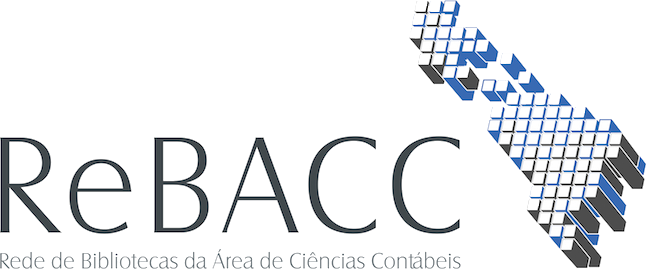Use este identificador para citar ou linkar para este item:
http://rebacc.crcrj.org.br/handle/123456789/1422Registro completo de metadados
| Campo DC | Valor | Idioma |
|---|---|---|
| dc.creator | Luis Silva Domingo | - |
| dc.date | 2007-12-26 | - |
| dc.date.accessioned | 2014-11-12T18:40:22Z | - |
| dc.date.available | 2014-11-12T18:40:22Z | - |
| dc.date.issued | 2014-11-12 | - |
| dc.identifier | http://www.atena.org.br/revista/ojs-2.2.3-06/index.php/UERJ/article/view/635 | - |
| dc.identifier.uri | http://rebacc.crcrj.org.br/handle/123456789/1422 | - |
| dc.description | Quizás el punto de mayor acuerdo en la literatura sobre control de gestión sea que el problema de diseño de sus mecanismos es el impacto de la posible incongruencia de los objetivos personales y organizacionales en el comportamiento del individuo. Las respuestas que los diversos autores han dado a este problema básico de control son, sin embargo, radicalmente distintas. Y probablemente esta diversidad no pueda ser resuelta nunca dado que, como se defiende en este trabajo, la definición del propósito del control de gestión depende directamente de la concepción de la naturaleza del ser humano. La complejidad de la naturaleza humana se ve claramente reflejada en la diversidad de teorías formuladas al respecto y al poco o ningún avance en un acuerdo sobre el tema. Y además, es importante resaltar que los modelos de comportamiento del ser humano se comportan como profecías autocumplidas: si el empleador trata a los empleados según su concepción, la gran mayoría de éstos actuará acorde a ella aunque el modelo no sea cierto. En esencia, este trabajo sostiene que los académicos tienen la gran responsabilidad y desafío de transmitir esta diversidad en las aulas, permitiendo a los profesionales diseñar los sistemas de control de gestión según sus propias concepciones de ser humano. Palabras clave: Sistemas de Control de Gestión; Naturaleza humana ABSTRACT Perhaps the major agreement in the literature is the problem that the design of management control systems must solve. That is, the impact in employees behaviour of the incongruity between individual and organizational objectives. However, different authors have given radically different answers. And most probably, as it is argued in this paper, these differences will never be solved since the definition of control depends on the author’s conception of the human nature. Human nature complexity could be observed in the diversity of theories formulated and the litlle – or null – advance towards an agreement about it. It is also important to highlight that, at work, almost all models of human nature could become self-fulfilling prophecies: if the employer treats the personnel according to some model of human nature – even if he is not aware of, most of his employees will behave accordingly, even if the model is not true by itself. In brief, this paper argues and supports that we as academics have the great responsibility and challenge of transmitting this dependence and diversity in the classrooms – we must allow the professionals to design the management control systems in accordance to their own conceptions of human nature. Keywords: Management Control Systems; Human Nature | - |
| dc.description | ABSTRACTPerhaps the major agreement in the literature is the problem that the design of management control systems must solve. That is, the impact in employees behaviour of the incongruity between individual and organizational objectives. However, different authors have given radically different answers. And most probably, as it is argued in this paper, these differences will never be solved since the definition of control depends on the author’s conception of the human nature. Human nature complexity could be observed in the diversity of theories formulated and the litlle – or null – advance towards an agreement about it. It is also important to highlight that, at work, almost all models of human nature could become self-fulfilling prophecies: if the employer treats the personnel according to some model of human nature – even if he isnot aware of, most of his employees will behave accordingly, even if the model is not true by itself. In brief, this paper argues and supports that we as academics have the great responsibility and challenge of transmitting this dependence and diversity in the classrooms – we must allow the professionals to design the management control systems in accordance to their own conceptions of human nature.Keywords: Management Control Systems; Human Nature | - |
| dc.format | application/pdf | - |
| dc.publisher | REVISTA DE CONTABILIDADE DO MESTRADO EM CIÊNCIAS CONTÁBEIS DA UERJ | - |
| dc.rights | <p>Os direitos patrimoniais dos artigos aceitos para publicação, inclusive de tradução, passam a ser de propriedade da Revista de Contabilidade do Mestrado em Ciências Contábeis da UERJ (online).</p><p>É permitida a citação parcial de artigos publicados, sem autorização prévia, desde que seja identificada a fonte. A reprodução total de artigos é proibida. Em caso de dúvidas, favor entrar em contato: (<span style="font-size: 9.0pt; line-height: 115%; font-family: "><a href="mailto:rcmcc@uerj.br" target="_blank"><span style="mso-bidi-font-size: 11.0pt; line-height: 115%; color: #1155cc;">rcmcc@uerj.br</span></a></span>).</p><p>As declarações dos artigos aprovados, devem ser originalmente assinadas e enviadas pelos Correios para o endereço de contato da revista.</p><p><!--[if !mso]> <mce:style><! v\:* {behavior:url(#default#VML);} o\:* {behavior:url(#default#VML);} w\:* {behavior:url(#default#VML);} .shape {behavior:url(#default#VML);} --> <!--[endif]--> <a href="http://faf-uerj.com/mestrado/index.php?option=com_docman&task=doc_download&gid=286&Itemid=">Declaração Direitos Autorais</a></p><p> </p> <p><!--[if !mso]> <mce:style><! v\:* {behavior:url(#default#VML);} o\:* {behavior:url(#default#VML);} w\:* {behavior:url(#default#VML);} .shape {behavior:url(#default#VML);} --> <!--[endif]--> <a href="http://faf-uerj.com/mestrado/index.php?option=com_docman&task=doc_download&gid=285&Itemid=">Declaração de Originalidade</a></p><p><a class="doclink" href="http://www.sergiomariz.com/mcc.uerj/index.php?option=com_docman&task=doc_download&gid=285&Itemid="><strong><em></em></strong></a></p> | - |
| dc.source | REVISTA DE CONTABILIDADE DO MESTRADO EM CIÊNCIAS CONTÁBEIS DA UERJ; Vol. 12, No 3 (2007) | - |
| dc.subject | Sistemas de Control de Gestión; Naturaleza humana; Management Control Systems; Human Nature | - |
| dc.title | LA RELACIÓN ENTRE LA NATURALEZA DEL SER HUMANO Y LAS TEORÍAS DE CONTROL DE GESTIÓN: RESPONSABILIDAD Y DESAFÍO DE LA ACADEMIA | - |
| dc.title | The relationship between human nature and management control theories: responsibility and challenges of the academy | - |
| Aparece nas coleções: | Artigos - Atena | |
Arquivos associados a este item:
Não existem arquivos associados a este item.
Os itens no repositório estão protegidos por copyright, com todos os direitos reservados, salvo quando é indicado o contrário.

